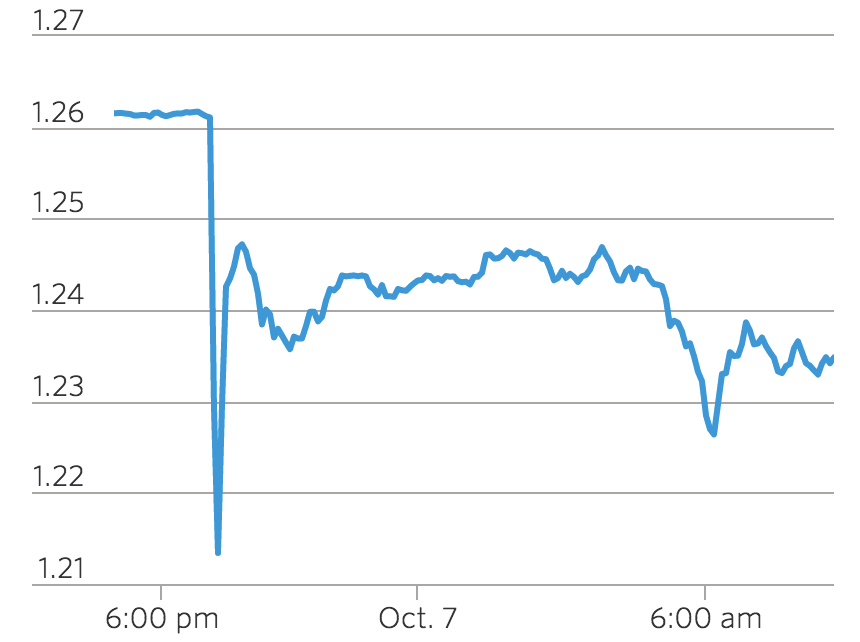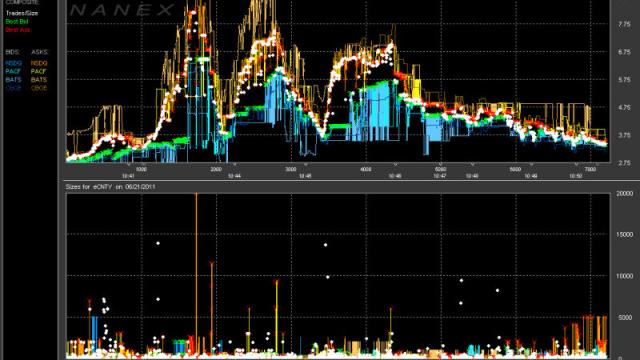The British pound suffered a “flash crash” yesterday in which it plummeted six per cent against the US dollar within a matter of minutes. All signs point to high frequency stock trading as the culprit — and possibly a single algorithm.
Image: TheBigData
The British pound fell by more than six per cent yesterday, suddenly dropping to $US1.18, a value that hasn’t been seen in 31 years. The currency quickly rebounded, finally settling in at about $US1.24. The so-called “flash crash” was brief, but it’s still sending shockwaves throughout the financial world.
“I initially doubted what I saw on my screen,” said Kenji Yoshii, a foreign exchange strategist at Mizuho Securities, in the Wall Street Journal.

Last night’s dramatic tumble. (Image: Wall Street Journal)
Normally, dramatic drops like this are triggered by major news events, such a declaration of war or a monumental political development. But experts say this incident was likely the result of trading algorithms that were reacting to recent comments made by French President Francois Hollande, who called for tougher Brexit negotiations.
“Apparently it was a rogue algorithm that triggered the sell-off after it picked up comments made by the French President, Francois Hollande, who said if Theresa May and [company] want hard Brexit, they will get hard Brexit,” noted Kathleen Brooks, research director at City Index.
She says that some modern algorithms trade on the back of news sites, and even on what’s trending on social media sites like Facebook and Twitter. “[A] deluge of negative Brexit headlines could have led to an algo taking that as a major sell signal for GBP,” said Brooks. “Once the pound started moving lower than more technical algos could have followed suit.”
High frequency stock trading is a form of rapid-fire trading that involves algorithms, or bots, that can make decisions on the order of milliseconds. They’re guided by factors such as time, price, some fancy maths — and even headline news. Compared to these lightning-fast traders, humans are slower by an order of magnitude, which means we’re increasingly being left out of the loop. Stock trading represents the first major domain in which we’re getting AI to do most of the work, and an entirely new digital ecology is emerging.
But as this latest incident shows, mistakes do happen. This “rogue” bot (or bots — we still don’t know what actually caused this latest flash crash) was clearly overreacting to the news, and the other algorithms reacted accordingly in a bizarre herd-like manner. Clearly, better safeguards need to be put into place to prevent these sorts of shenanigans.
This incident brings to the mind the flash crash of 6 May 2010, when the Dow Jones Industrial average fell 1000 points in just a few minutes.
[AFP, New Scientist, WSJ]
